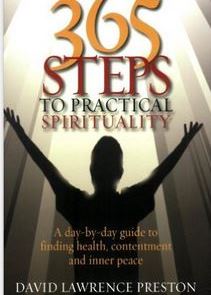Beliefs are collections of thoughts or ideas we hold to be true. We’re not born with them – all beliefs are learned, many in childhood.
Nothing we believe is ever certain. Beliefs are transitory in nature, and millions have died for beliefs that no longer hold water, for instance that the world is flat, heavy objects can’t fly and metal ships can’t float.
Having adopted a belief, we take it for granted. We make the ‘facts’ fit the belief and ignore any evidence that doesn’t support it. That’s the essence of religious belief – giving sanction to an idea that doesn’t bear rational scrutiny and then clinging to that idea despite the evidence.
Religious beliefs form when people gravitate towards a set of ideas that appear to explain the some or all of the mysteries of our existence. These beliefs are reinforced by rules, rituals and social pressure; fear of punishment too in some circumstances. Minds close and an ‘us and them’ attitude forms.
Most regions are inspired by high ideals, but, like all beliefs, they must be open to analysis, appraisal and criticism. All contain SOME truth, but none contain the WHOLE truth because this has not yet been revealed to us at this stage of our evolution.
How do we know what religion we are?
A friend told me of an incident that took place many years ago when he attended Sunday School as a child. The teacher asked, ‘How do we know we’re Methodists and not Catholics or Church of England?’ He retorted, ‘How do we know we’re Christians and not Muslims, Hindus or Jews?’ The teacher had no satisfactory reply.
The religion to which we subscribe depends largely on where were born and what our parents believed. I was born in England at a time when Christianity was the dominant faith. If I had been born in Southern India, I would probably have been brought up a Hindu; in Nepal, a Buddhist; in Israel, a Jew; in Saudi Arabia, a Moslem, and so on.
Nowadays, less than one in five Brits claim to follow an organised religion, and these include virtually all Muslims, Hindus and Sikhs who take their religion very seriously. Those born in today’s Britain outside the Asian community are likely to be raised with no religion at all.
Is this a bad thing? That’s a matter of opinion. Truth does not depend on our belonging to a particular religious group!
Religious symbolism
How do we account for the animosity that exists between various religions and even between different denominations of the same religion when 90% of their teachings is the same? The explanation lies in the fact that the living message of spirituality is all too often hidden beneath symbols and metaphors that are mistaken for reality and rituals that divide rather than unite.
Look behind the superficial differences in religions
Look beyond the superficial differences to what the religions have in common. For example, all major religions teach modesty in dress. That’s why men and women are expected to cover their legs, shoulders and sometimes their heads when visiting a place of worship. Some religions take this further, insisting that women cover their hair when outside the home. The underlying motivation is the same – only the expression is different.
Just because another person’s faith doesn’t resonate with you doesn’t mean it has no value. There are many paths leading to the same Truth. If someone wants to argue that one religion is better or worse than another, tell them you see the good and bad in all religions and want everyone to be free to find the truth for themselves wherever they may find it.
As we grow in spiritual awareness, religious differences fall away, leading to a common experience that encompasses all.
©David Lawrence Preston, 11.11.2016
Follow me on Facebook and Twitter @David_L_Preston
How to Books, 2007


Leave a Reply